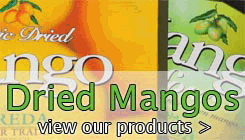Fair-Trade week is a time to remember the global injustice that is causing the food crisis everywhere. The land grabbing to grow fuel crops puts the vehicles of the rich before the hunger of the poor. The people of the developing world are those deprived of a decent livelihood because of land-grabbing and cutting of forests and the mining industry that destroys rice lands. The food shortage and rising prices is man made by unfair trade. The prices paid to rice farmers are so low and the costs of chemical fertilizers and pesticides are so high (supplied by the chemical corporations) that the poor get poorer and always in debt. Most farmers are landless and tenants only and they are giving as much as 40 percent of their harvest to the absentee landlord. The wealthy Lord of the lands lies in luxury and leaves his tenants barely surviving in poverty and victims of exploitation. Here at the Preda Fair-Trade project we are helping farmers to go organic and be self-reliant and produce healthier food.
Real developmental Fair-Trade is not a gimmick to make more profit but it is a movement that seeks the promotion of the Human Rights and the principles of equality and justice in trade. It is the unfair balance in economics that is the source of pain and hardship, disease and death for millions. The world is filed with food but the few own the food of the many. The poor just can’t buy it and the rich will not lower the prices, they are greedy for profit and grow fat on unjust profits. Fair-traders gives just wages, fair payments for products and helps people overcome all kinds of exploitation, social injustice and exploitation. When you want to know who is the real fair trade organization just research what development products are they funding with their earnings. They ought to have a direct involvement with the poor.
Fair-Trade is more than ethical trading. It spends human effort and earnings to better the lives of the poor. It should not be supporting the rich and powerful.
I have a criticism of the Fair-Trade Labeling Organization called FLO for giving a Transfair label to the big multinational corporations for one or two products that they call Fair trade. It’s more of a gimmick, a ploy to sell more products and dupe and fool the public into thinking that they, a development organization out to change the world of the poor. They are out to maximize profits. They use the hunger of the world to make profit. They are not fair trade organizations.
Preda Fair trading which I set up in 1975 tried to give fair and just livelihoods to the poor, so they could be self-sustaining. They get interest free production loans and other assistance and we help to sell their products all over the world. We work to spread the message and have other work for social justice and fairness in trade on all levels.
At Preda Fair-Trade, we are helping the sea-salt farmers. They are making a very important product and working in the sun day after day to dry salt from the sea and they deserve a just and fair price. We give them that and help improve their living conditions. The mango farmers will benefit form the export of organically grown mangos which we will soon export. Presently, the sugar free dried mangos are becoming very popular as a health product. Recycled bags helps the collectors of used and discarded drink pouches earn a very good income, the bag makers are thriving and making excellent quality recycled shoulder bags, wallets and back packs. There are many things we are doing to make this better and happier world through Fair-Trade. The consumers need to know that Fair-Trade starts in the poor villages, with the poor, with groups who are with them standing with them against the land grabbers, the loggers destroying their forests, and against the exploiters that keep them in slavery. We work for freedom, economic freedom and a decent and happy life for all. Fair-Trade is the way you too can be one with us by buying Preda fair trade products. Visit: www.preda.net and www.preda.org

